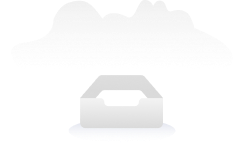Bachelor of Commerce/Bachelor of International Relations
Course is closed
La Trobe University








Priority 1 (Fastest)
Sufficient school places|Visa Approval Time: 1-2 weeks for fast visa approval
Data updated: 2025-11-13
2026
- Total Tuition Fee152,800 AUD
- Fee Per Academic Year38,200 AUD
- Course Duration4.0 Year (208 weeks)
- Last Updated07-11-2025
Overview
Introduction
Qualify for a professional position in accounting, economics, finance, marketing or management and extend your knowledge and skill through a study of international relations. Develop an ability to apply commercial skills to the management of international institutions, multinational companies, NGOs and public service agencies such as foreign trade.
The international relations component explores power in political, social and cultural contexts. By analysing multinational corporations, non-government and government organisations, you'll build an understanding of international affairs. Your subjects will cover areas like culture and globalisation, democracies and dictatorships, and Australia as a global nation.
The commerce component is designed to develop responsible, engaged and innovative, work-ready graduates by providing you with opportunities to talk and work with business. It comprises an eight-subject common core and an eight-subject primary major, chosen from five key business disciplines: accounting, economics, finance, management and marketing.
The qualification awarded on graduation is recognised in the Australian Qualifications Framework (AQF) as Level 7.
Key Dates
2025
2026
2027
2028
School Application Steps
Follow the process below, prepare materials in order, and track the progress of each stage.
- 1
Prepare Materials (School Application)
- Organize academic and language materials based on the list of target courses and schools.
- If the requirements are not yet met, you can apply for a language pathway program/packaged course (ELICOS/internal test) first.
- Name the electronic versions of documents uniformly (in English) for easy reuse in subsequent visa applications.
Documents for Adult Applicants
- 2
Briefing on School-Arranged Interview (if applicable)
- Submit application materials, including transcripts, passport, and English proficiency proof, to the State Department of Education.
- School review: The Department of Education recommends schools based on the student's situation, and the school arranges an interview after its review.
- Interview notification: An email will specify the interview time, method (usually Zoom or Teams), and preparation details.
- Interview content: A conversation in English including self-introduction, interests, academic situation, future plans, and a comprehensive assessment of learning habits, adaptability, reasons for coming to Australia, etc. The duration is approximately 15-30 minutes.
- 3
Submit School Application
- Submit the application through the school's official website or an agent's portal and pay the application fee (if any).
- Submit supplementary documents as required and track the admission progress (Conditional/Unconditional Offer).
- After meeting the conditions, pay the tuition deposit and complete the acceptance procedure (Accept Offer).
- 4
Obtain CoE and Arrange OSHC
- The school issues the CoE (Confirmation of Enrolment).
- Purchase/confirm OSHC to cover the entire visa period (including dependents, if any).
- 5
Visa Document Preparation (Subclass 500)
- Organize documents for finances, GTE, English proficiency, and medical examination, ensuring consistency with the chosen course.
- Check the letterheads, dates, translation formats, and certification requirements of visa documents.
School Level
The school's visa assessment level determines the risk level for students applying for a visa and is a significant reference.
For example, if a school's visa assessment level is 2, the applicant will face more restrictions and be required to provide more written evidence, such as proof of language proficiency and financial capacity.

Course Campuses
- VIC
Similar Course
VIC
NSW
WA
TAS
QLD
SA
ACT
NT

No data available~

